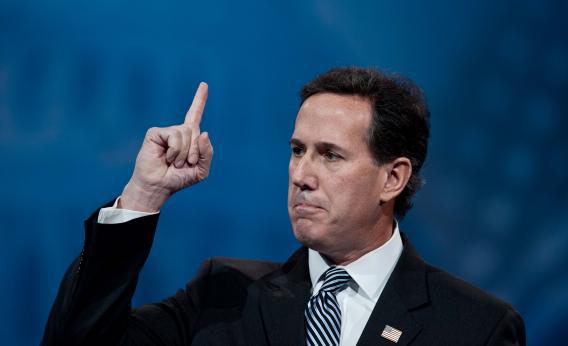Byron York asks why isn’t Rick Santorum the GOP frontrunner for 2016, and argues that despite being best known for his ludicrous and unpopular views on religion and social issues we should really see him as a champion of working class economic interests:
Briefly put, Romney lost because he failed to appeal to the millions of Americans who have seen their standard of living decline in recent decades. Of all the GOP’s possible candidates, Santorum has the most cogent analysis of that loss, and a plan to avoid repeating it in 2016. That’s the topic we started with when I sat down with him at a Washington coffee shop last week.
In the rest of the article, York quotes Santorum saying various things about the need to champion working class economic interests. And indeed on the campaign trail, Santorum said a fair amount about this. He also championed a tax plan that relative to a scenario in which the Bush tax cuts were fully extended would have extended an additional $448,000 per year in tax cuts to people earning over $1 million per year, while delivering around $1,000-$2,000 to the median family. To pay for that, you would need to enact large cuts in Social Security, Medicare, Medicaid and other programs.
Maybe that’s a good idea. But I sincerely doubt that it would serve the financial interests of the typical working class American. But this seems to be about where we are in terms of economic policy discourse in the conservative movement. You can either have the rich finance guy who likes to talk about “job creators” and whose agenda is cutting middle class services to pay for regressive tax cuts, or you can have the guy worth “only” a couple of million dollars who likes to talk about working class people and whose agenda is cutting middle class services to pay for regressive tax cuts. Actually reconsidering the idea that the best response to thirty years of slowing growth and growing inequality is to cut middle class services to pay for regressive tax cuts isn’t on the agenda.
